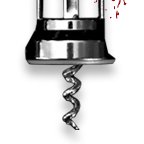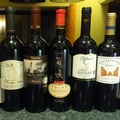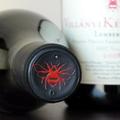Krémer Mátyás, a Wine Spectator filozoptere (Tokaj áldott nevű propagátora) a legutóbbi Wine Spectator számban egy olyan témába vágta a fejszéjét, ami már alig látszik a fejszenyomoktól, de nem árt tovább aprítani. Nem utolsósorban azért, mert a prózai gyakorlat gyakran kényszerít arra, hogy szemet hunyjunk fölötte. A mélyebb kérdés ebben a formában tört a felszínre: hány palack kell egy bor megértéséhez?
Kramer klasszikus axiómája így hangzik: "Egy bor megismeréséhez legalább 6 palackon át vezet az út". Borértés (Making Sense of Wine) c. könyvében így írt: "Az egyszer kóstolt bor olyan, mint az a szám, amit egyszer hallottunk a rádióban... Az örömben, amit a bor fejlődésének megfigyelése jelent, csak akkor részesülhetünk, ha egy kartonnal raktározunk belőle." Az olvasók az évek folyamán szerették volna Kramer szívét meglágyítani, és lejjebb tolni a küszöböt, de ő egészen mostanáig nem engedett a hatból.
Most azonban megérett a helyzet a korrekcióra. Kramer elmondása szerint az eredeti tétel egy másik korban, más légköri viszonyok között született. Ha valaki mondjuk chardonnay-t akart palackérlelni, akkor még a nyolcvanas években is csupán egyetlen ésszerű választása volt: a fehér burgundi.
A kaliforniai chardonnay még gyermekcipőben járt, és nem is látszott érlelésre alkalmasnak. Hasonló volt a helyzet a cabernet-vel. A kaliforniai cabernet érlelési potenciálja ugyan a kezdetektől látszott, de egyrészt szűkös volt még a mezőny, másrészt az érlelési potenciál ekkor még csak hipotézis volt, tehát, az okos és/vagy takarékos borbarát bordóiba fektetett. Ami a pinot-t illeti, abban nem is volt mit mérlegelni – a mai világméretű pinot-boom, akkor még csírájában is alig létezett. A sauvignon blanc és a syrah egyet jelentett a Loire-völggyel, ill. a Rhone-vidékkel.
Az áttörést a '90-es évek hozták el. Berobbantak az olasz borok. Aztán jöttek az ausztrálok, a chileiek, az új-zélandiak, a dél-afrikaiak, a kaliforniaiak, az oregoniak és washingtoniak i ták dáse. De ami a legfontosabb: jelentősen szűkült a szakadék a krémek krémje és a futottak még kategória között.
Vagyis elérkezett az idő, hogy Kramer új direktívával álljon elő: "Egy bor megismeréséhez 4 palackra van szükségünk" (feltéve, hogy a vásárlás előtt egyszer már kóstoltuk). A négy palack a borélet (vagy még inkább a borértés) négy fázisának felel meg: megerősítés, kétely, méltányolás és megértés.
Ha van 4 palackod, akkor egyet bármikor csapra verhetsz. Megkóstolod, és azt mondod: "Frankón választottam. Pompás bor." Ez a megerősítés szakasza.
Aztán valamivel később, amikor már sok hasonló jellegű bort kóstoltál, fölüti fejét a kétely: "Tényleg olyan szép? Jól választottam, vagy elsiettem a dolgot?" Hogy kiderüljön az igazság, újabb palackot bontasz. A négy fázis közül ez a legrázósabb. Közismert tény, hogy van a borok életének egy olyan szakasza, amikor az ifjúság gyümölcsös varázsa már elillant, de még nem alakultak ki az érettség finomabb árnyalatai. Vagy egyszerűen bezárul a bor. Ilyenkor jön az önvád: "Mit láttam én ebben a borban?"
De maradt még két palack. Jól eldugod őket, hogy ne legyenek szem előtt. Mire elszánod magad a harmadik palack bontására, már sok idő telt el. Ilyenkor általában kellemes meglepetésben van részed. Ez a méltányolás szakasza: "Ejha! Ez sokkal szebb, mint amire emlékeztem! Kezd formába lendülni."
Végül elérkezik a negyedik palack ideje. A bor ekkor már az érettség közelében jár. Alig várod, hogy kibontsad, hiszen a legutóbbi találkozás annyira felvillanyozó volt. Ezúttal a barátaidat is meghívod, hogy megosszad velük az élményt. Megkóstolod, és a bor ... nem rossz. Vagy remek. Vagy egyedülálló. Vagy csak olyan, mint volt. (Nem minden bor fejlődik.) De bármilyen legyen is, az előző 3 palackkal már tapasztalatot szereztél. Nélkülük nem juthattál volna el a megértésig. Most már tapasztalt vagy. Láttad a bor életútját. Nem mellesleg, az ízlésed is hosszú utat járt be. A bornak számodra története van: kettőtök közös története.
A barátaid ebből persze kimaradtak. Ők most hallják azt a számot először a rádióban. Te már minden hangját ismered. Ők csak az ízt érzik. Te a bort.






Utolsó kommentek